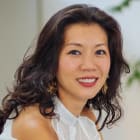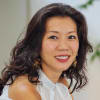Commentary: Parents, don’t let PSLE take over your life
We cannot shield our children from the stresses of exams and the consequent pressure that they bring. But we don’t have to amplify it, says Cherie Tseng.

File photo of students taking an exam. (Photo: iStock/smolaw11)
SINGAPORE: We are a great test-taking nation. We score well on most examinable KPIs, especially when there is a test to prepare for and take. If Singapore was given an Education report card, she would score an AL1 in test-taking.
The primary school leaving examination (PSLE) is now in full swing, with the written papers beginning on Thursday (Sep 29). Those taking Higher Chinese, Malay or Tamil will only be able to breathe easy after Oct 5.
But if you ask most Primary 6 students, they will tell you that the past nine months have been pretty much a long rolling wave of tests, revisions, supplementary lessons and homework - often accompanied by a countdown-to-the-PSLE clock in their classrooms.
“As though any of us would forget it is PSLE year for us,” my firstborn deadpanned to me.
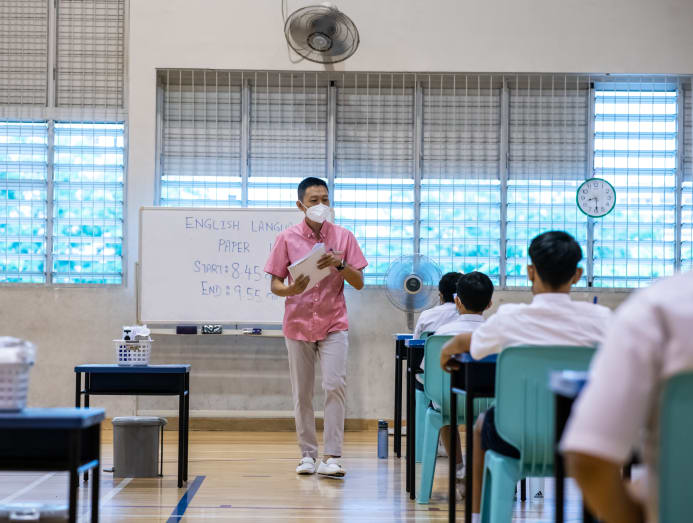
EXAMINATIONS AND FEAR OF FAILURE
For most students, the PSLE is the first academic rite of passage a student in Singapore will face.
No matter how we sugar-coat it, taking a major examination is a big thing - whether we take the PSLE, the O- or A-Levels as a student, or even as a high-level professional certification as adults.
A 2018 study by the Organisation for Economic Cooperation and Development showed that about three out of four students in Singapore fear failure, with 78 per cent agreeing or strongly agreeing with the phrase “When I am failing, this makes me doubt my plans for the future”.
Additionally, 72 per cent of students in Singapore also agreed or strongly agreed that, when they fail, they worry about what others think of them.
“Fear of failure can be a double-edged sword, and parents, teachers and school principals should be aware that instilling a fear of failure in children may also adversely affect their well-being,” said Andreas Schleicher in the interpretations of OECD’s Programme for International Student Assessment (PISA) triennial survey of 15-year-old students.
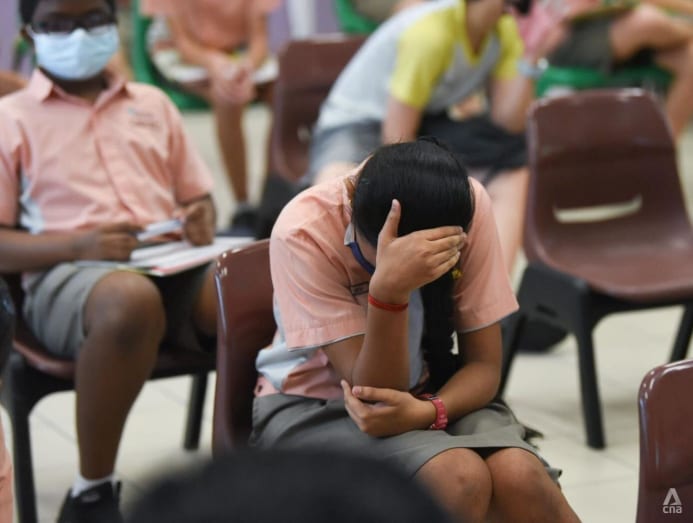
BUILDING RESILIENCE IN CHILDREN
We cannot shield our children from the stresses of exams and the consequent pressure that they bring. Life will bring with it oodles of valleys, potholes and stressful seasons.
When well-balanced, well-managed and well-supported, these trials are character forming and can build resilience.
We cannot expect resilient adults if we do not nurture them in our children; neither can we expect well-balanced children if we do not help model it in their lives growing up.
We are the first tribe our children will have: How we navigate choppy waters with them will help them calibrate their internal compass for stressful periods in their lives.
Being mindful about when to lean in and when to pull back in our support and let our children take the lead shapes parent-child relationships in powerful ways.

SCHOOLS PREPARE OUR CHILDREN, WHO PREPARES THE PARENTS?
But in the run-up to the PSLE, who’s looking after the parents?
In a commentary written by Nanyang Technological University Associate Professor Teo You Yenn last year, she discussed how children’s education has become a central component of parental duty and everyday family life, exerting significant costs in their lives.
“Parents with children currently in primary school, particularly those in Primary 5 or 6, talk like exhausted people in the trenches,” she said.
Parents hold no prisoners when it comes to preparing our students and children for them above and beyond the “normal” demands of school.
After all, Singapore households spent S$1.4 billion on private tuition in 2018 to supplement their children’s school education. Latest data from the 2017/2018 Household Expenditure Survey showed that residents households on average spent S$112 a month on tuition and other educational courses.
I’ll fess up and admit that my son’s Mandarin tuition alone costs more the average household spend. Add the once-a-week Science class just to unravel the sheer pedantic-ness of how to tackle questions using the correct keywords - the costs add up. The struggle is real. But it is only for a season … right?
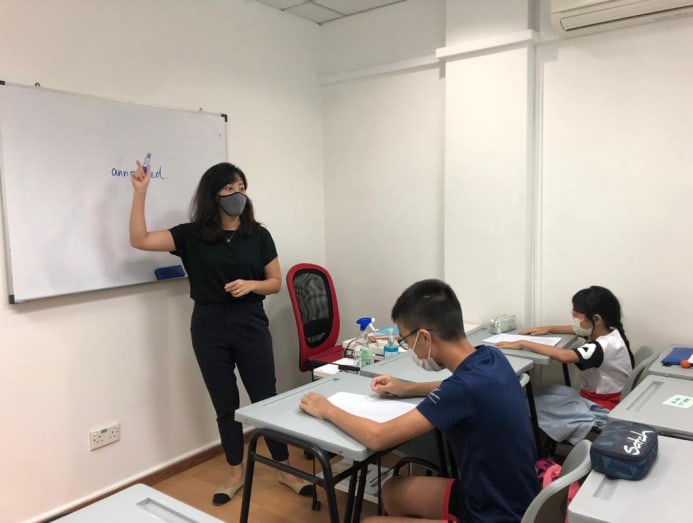
Listen: Learning to let go as a working mother
Perhaps then, while our students are well-prepared, at least, academically, it is us parents who are poorly equipped to weather our children going through the PSLE.
Parents are very adept at asking for help for their children, be it tutor referrals, sport coach recommendation, or wellness suggestions. But it is quite different when it comes to asking for fortification for themselves as a pace-keeper.
Dr Kim Lian Rolles-Abraham, senior clinical psychologist at Better Life Clinic, told me that many parents do not feel like they can reach out for help when they are not coping. Those who do are unclear about the kind of support they need, and as a result do not get it. “Parents need also get comfortable at asking help for themselves,” she said.
RETURN TO BASICS
Holding space for a child that is undergoing a stressful period like the PSLE doesn’t have to look complicated, it can be as simple as reminding your child and yourself to return to what is the core of our family.
Ms Jolie Tan, a parenting coach at Actualise, suggests that holding space during exam season can be you and your child winding down each day with the Three Good Things exercise from Positive Psychology. This involves writing down three things that go well for you every day for at least a week.
Some studies have shown that the exercise, created by psychologist Martin Seligman, is associated with increased levels of happiness and well-being.
It is also more realistic to work towards creating small pockets of relaxation, ideally daily.
For example, instead of drinking your favourite tea while marking your child’s assessment papers, take five minutes to sit in the favourite corner of your home to savour your drink. The key is to take time out of your schedule to focus on the self-soothing activity rather than trying to multi-task.
At the workplace, an ecology of care can also kick in.
Dr Jean Liu, Assistant Professor of Psychology at Yale-NUS College, shares that parents, especially mothers, often struggle with guilt at the workplace and guilt within the family.
However, psychology research has found that the most important support for working mothers comes when the organisations they work for have family-friendly policies and culture.
THEORY AND PRACTICE: THE PSLE PARENT HANDBOOK
So, as far as parental mental wellness and health are concerned, we are heavy on the theory and the resource is bountiful - what parents need to do is to work on converting theory into practice.
A friend texted me last week so say that he will take time off work to go into the trenches with his daughter and help her with her Mandarin.
Another friend has said that she cannot afford to take time off work, something her daughter is aware of and is okay with.
As for me, after discussions with my son, I will be taking leave over the few PSLE days - not to run a last-minute bootcamp, but to simply be with him.
I have realised my son copes by decompressing with the family and doing mundane things like having an unrushed meal together, or walking to the park to shoot hoops.
As with many things in life, weathering your first PSLE season doesn’t come with a best-practice playbook.
We do our best; we wing it. We make the rules up as we go along. We discover, we learn and we grow. And maybe that’s just the way it should be.
Cherie Tseng is Chief Operations Officer at a local fintech company, a mother of three and editor with The Birthday Collective.


